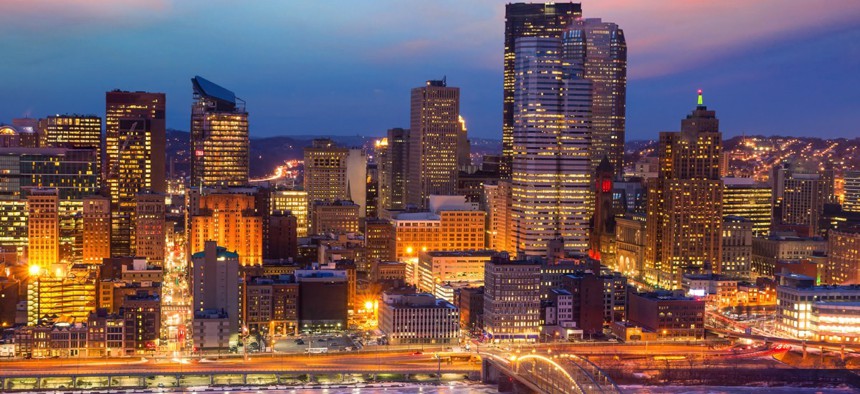Here’s Another Tool to Make Cities Smarter

Pittsburgh, Pennsylvania f11photo / Shutterstock.com
The Smart Cities Council wants more municipalities to assess their ability to innovate and start pursuing smart energy and broadband solutions.
The Smart Cities Council recently took its Smart Cities Readiness Guide online to help municipalities assess their ability to innovate sustainable solutions improving their livability.
A for-profit partnership acting as a market accelerator and educator for smart cities, the council released its original guide in 2013 for use by thousands of municipal leaders worldwide including officials in Hartford, Connecticut.
Recommendations on subjects like technology are vendor-neutral and draw on more than 200 case studies into urbanization, failing infrastructure, climate change and economic development.
“The Readiness Guide is an invaluable resource for our team,” said Grant Ervin, Pittsburgh’s chief resilience officer, in the Smart Cities Council’s announcement released last week. “It provides a common vocabulary plus lessons learned from actual smart city installations around the world.”
Project selection, achieving consensus, implementation and gauging performance using analytics are all addressed in the roadmap, which cities can also refer to when looking to reduce costs or create jobs.
The guide starts by examining how a city becomes smart:
In simplest terms, there are three parts to that job: collecting, communicating and “crunching.” First, a smart city collects information about itself through sensors, other devices and existing systems. Next, it communicates that data using wired or wireless networks. Third, it “crunches” (analyzes) that data to understand what’s happening now and what’s likely to happen next.
And then it dives into practical strategies, from establishing a “built environment,” where networked infrastructure communicates with government to boost efficiency, to “change management”—easing citizens into the transition while addressing privacy and security concerns.
By starting with smart energy grids and broadband, cities can begin to make inroads with other pressing challenges like traffic congestion, water conservation, disposal of increasing garbage, delivering healthcare and ensuring public safety.
“Cities around the world are already using the Readiness Guide to make tremendous progress in achieving economic, environmental and social sustainability, and we are pleased to make it easier for cities to navigate,” Jesse Berst, the chairman of the Smart Cities Council, said in a statement.
Dave Nyczepir is a News Editor at Government Executive’s Route Fifty.
NEXT STORY: DARPA calls on DIYers for weaponized tech






